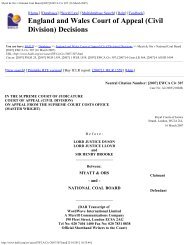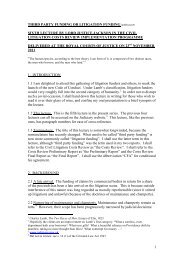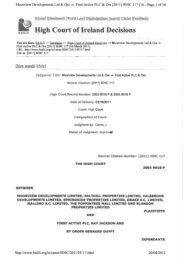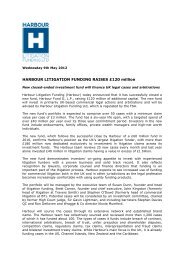[2013] SGHC 135 - Singapore Law Watch
[2013] SGHC 135 - Singapore Law Watch
[2013] SGHC 135 - Singapore Law Watch
Create successful ePaper yourself
Turn your PDF publications into a flip-book with our unique Google optimized e-Paper software.
<strong>Law</strong> Society of <strong>Singapore</strong> v Kurubalan s/o Manickam Rengaraju [<strong>2013</strong>] <strong>SGHC</strong> <strong>135</strong><br />
Respondent was once also admitted to practise in Queensland, there was<br />
ultimately no real dispute that on the facts presented he was engaged and acted<br />
as an Advocate and Solicitor. In such a case the practitioner is squarely bound<br />
by the rules of conduct applicable to Advocates and Solicitors. If this is the<br />
correct analysis for a practitioner who is dual qualified, then the position of an<br />
Advocate and Solicitor who is assisting a client in a foreign jurisdiction where<br />
he is not admitted at all cannot be any different. In such a case, his<br />
professional conduct can only be assessed against one regulatory framework,<br />
namely, ours.<br />
67 These issues are not academic. Commercial litigation is increasingly<br />
cross-border in nature. This can be true also of tort claims, and the present<br />
case is just one example. In international arbitration, third party funding is a<br />
significant issue especially as it is largely unregulated as compared to the<br />
position of third party funders in the domestic sphere. The latter are generally<br />
regulated in those jurisdictions where they are permitted to operate.<br />
68 But returning to what is directly relevant for our purposes, in our<br />
judgment, even if an Advocate and Solicitor is subject to our regulatory<br />
framework, it would be permissible and generally appropriate for the court<br />
also to have regard, for the purposes of sentencing, to the applicable public<br />
policy as reflected in the regulatory framework of the jurisdiction directly<br />
affected, at least where the champertous arrangement in question has little if<br />
any impact in <strong>Singapore</strong>. Having said this, we should note that this was not a<br />
case where the Champertous Agreement had no impact in <strong>Singapore</strong>. Mr<br />
Rajah, as we have noted, submitted that we should view the Respondent’s<br />
position more favourably because his conduct did not interfere with the<br />
administration of justice here. To the extent that this submission was founded<br />
on the fact that there were no proceedings brought in this jurisdiction, it would<br />
36


![[2013] SGHC 135 - Singapore Law Watch](https://img.yumpu.com/37488807/36/500x640/2013-sghc-135-singapore-law-watch.jpg)
![Neutral Citation Number: [2010] EWHC 941 (QB) - Harbour ...](https://img.yumpu.com/47188668/1/190x245/neutral-citation-number-2010-ewhc-941-qb-harbour-.jpg?quality=85)
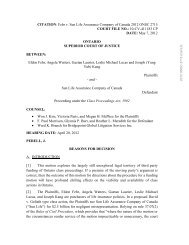
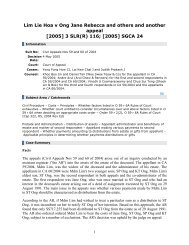
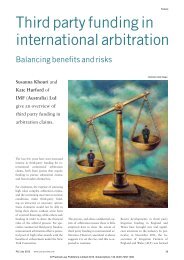
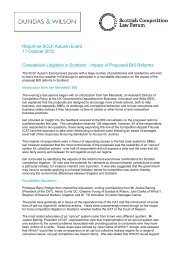
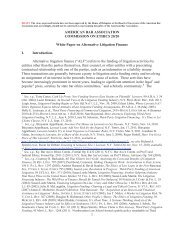

![Hall v Poolman [2009] - Harbour Litigation Funding](https://img.yumpu.com/37488843/1/190x245/hall-v-poolman-2009-harbour-litigation-funding.jpg?quality=85)
